NAME BEST DEMOCRATIC GOVERNMENTS IN PAKISTANS HISTORY THAT REALLY MADE THE COUNTRY PROGRESS
Here is my definition of democracy in Pakistan

Here is my definition of democracy in Pakistan







مزارع نے ہاتھ جوڑ کر جواب دیا کہ سایٔیں پندرہ دن سے ۔ کپتان صاحب نے حکم دیا اسے لے جاؤ اور اپنے پاس ایک مہینہ رکھوMust Read.
Excelent Column By Aftab Ahmed.
میں مارشل لاء کی حمایت کرتا ہوں اگر وہ جمہوریت اور سیاست سے آلودہ نا ہو : ہمارے ایک دوست جن کا تعلق سکھر شہر سے ہے 1958 کے مارشل لاء کا ایک قصہ سنا رہے تھے کہ جب مارشل لاء لگا تو پورے پاکستان میں ہر جگہ و ہر محکمے میں فوجی افسران اور سڑکوں پر فوجی سپاہی نظر آنے لگے ۔ حکومتی اہلکار و عوام سیدھے ہونا شروع ہو گیۓ عام لوگ سڑک پار کرتے تو زیبرا کراسنگ سے کرتے ، ہر دوکاندار اپنے سامان پر اشیاء کی لسٹ بمع نرخ لگا کر رکھتا ، قصایٔی، خوانچہ والے اور ہوٹل والے اپنے سامان پر جالی لگا کر رکھتے کہ ساما ن مکھیوں سے محفوظ رہے اور لوگ لایٔین لگا کر بس میں سوار ہوتے ۔ناپ تول میں کویٔی گھپلا نہیں ہوتا تھا ، شہر کی دیواریں خراب کرنے کی بجاۓ لوگ بیت الخلاء کا استعمال کرتے تھے ۔عام آدمی کو امید ہو چلی تھی کہ اب ہر چیز سیدھی ہو جاۓ گی اور اسے انصاف ملے گا ۔ ایک کپتان صاحب کمشنر کے دفتر میں بیٹھتے تھے کہ مزارع آ گیا اور حضور کے دربار میں دہا یٔی دینے لگا ۔ کپتان صاحب نے اپنے ساتھ بیٹھے کلرک سے جو تھر تھر کانپ رہا تھا پوچھا یہ کیا کہہ رہا ہے ؟ انہیں بتا یا گیا کہ یہ شکایت کر رہا ہے کہ مقامی وڈیرہ اس کی بیوی کو اٹھا کر لے گیا ہے ۔ تو پھر میں کیا کروں ؟ صاحب نے پوچھا ۔ کلرک نے جواب دیا جناب اسے انصاف چاہیۓ ۔ اچھا تو یہ بھی ہمیں ہی کرنا ہے کپتان صاحب نے پوچھا ۔ خیر انہوں نے کہا کہ اس سے کہو کل آ جاۓ ۔ دوسرے روز وہ مزارع کُکڑ پکا کے لے آ یا پوچھا گیا یہ کیا لاۓ ہو ؟ جواب دیا گیا کہ یہ کپتان سایٔیں کے لیۓ ہے ۔ بہر حال کپتان صاحب دفتر میں داخل ہوۓ اور حکم دیا کہ وڈیرے کی بیوی کو بلا کر لاؤ ۔ ملٹری کی جیپ گیٔی اور اسے لا کر کپتان صاحب کے حضور پیش کر دیا گیا۔ صاحب نے مزارع سے پوچھا کہ وڈیرے نے تمہاری بیوی کو کتنے دنوں سے رکھا ہوا ہے ۔ مزارع نے ہاتھ جوڑ کر جواب دیا کہ سایٔیں پندرہ دن سے ۔ کپتان صاحب نے حکم دیا اسے لے جاؤ اور اپنے پاس ایک مہینہ رکھو ۔ سنا ہے دو سال تک پورا پاکستان الف کی طرح سیدھا رہا ۔ پھر جیسے ہی سیاست و جمہوریت کی غلاظت مارشل لاء میں شامل ہونا شروع ہو یٔی سب کچھ ویسا ہی ہو گیا جیسا آج ہے ۔ ۔ ۔ ۔ ۔ گوبر زدہ سیاست و جمہوریت سے پاک مارشل لاء کی ضرورت ہے پاکستان کو ۔ ۔ ۔
مزارع نے ہاتھ جوڑ کر جواب دیا کہ سایٔیں پندرہ دن سے ۔ کپتان صاحب نے حکم دیا اسے لے جاؤ اور اپنے پاس ایک مہینہ رکھو
bhai ye line samjh ni lage
مشرف کے پٹھو سے اور کیا توقع کی جا سکتی ہے

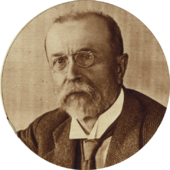
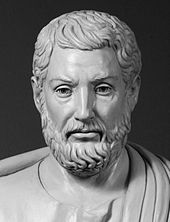

Must Read.
Excelent Column By Aftab Ahmed.
میں مارشل لاء کی حمایت کرتا ہوں اگر وہ جمہوریت اور سیاست سے آلودہ نا ہو : ہمارے ایک دوست جن کا تعلق سکھر شہر سے ہے 1958 کے مارشل لاء کا ایک قصہ سنا رہے تھے کہ جب مارشل لاء لگا تو پورے پاکستان میں ہر جگہ و ہر محکمے میں فوجی افسران اور سڑکوں پر فوجی سپاہی نظر آنے لگے ۔ حکومتی اہلکار و عوام سیدھے ہونا شروع ہو گیۓ عام لوگ سڑک پار کرتے تو زیبرا کراسنگ سے کرتے ، ہر دوکاندار اپنے سامان پر اشیاء کی لسٹ بمع نرخ لگا کر رکھتا ، قصایٔی، خوانچہ والے اور ہوٹل والے اپنے سامان پر جالی لگا کر رکھتے کہ ساما ن مکھیوں سے محفوظ رہے اور لوگ لایٔین لگا کر بس میں سوار ہوتے ۔ناپ تول میں کویٔی گھپلا نہیں ہوتا تھا ، شہر کی دیواریں خراب کرنے کی بجاۓ لوگ بیت الخلاء کا استعمال کرتے تھے ۔عام آدمی کو امید ہو چلی تھی کہ اب ہر چیز سیدھی ہو جاۓ گی اور اسے انصاف ملے گا ۔ ایک کپتان صاحب کمشنر کے دفتر میں بیٹھتے تھے کہ مزارع آ گیا اور حضور کے دربار میں دہا یٔی دینے لگا ۔ کپتان صاحب نے اپنے ساتھ بیٹھے کلرک سے جو تھر تھر کانپ رہا تھا پوچھا یہ کیا کہہ رہا ہے ؟ انہیں بتا یا گیا کہ یہ شکایت کر رہا ہے کہ مقامی وڈیرہ اس کی بیوی کو اٹھا کر لے گیا ہے ۔ تو پھر میں کیا کروں ؟ صاحب نے پوچھا ۔ کلرک نے جواب دیا جناب اسے انصاف چاہیۓ ۔ اچھا تو یہ بھی ہمیں ہی کرنا ہے کپتان صاحب نے پوچھا ۔ خیر انہوں نے کہا کہ اس سے کہو کل آ جاۓ ۔ دوسرے روز وہ مزارع کُکڑ پکا کے لے آ یا پوچھا گیا یہ کیا لاۓ ہو ؟ جواب دیا گیا کہ یہ کپتان سایٔیں کے لیۓ ہے ۔ بہر حال کپتان صاحب دفتر میں داخل ہوۓ اور حکم دیا کہ وڈیرے کی بیوی کو بلا کر لاؤ ۔ ملٹری کی جیپ گیٔی اور اسے لا کر کپتان صاحب کے حضور پیش کر دیا گیا۔ صاحب نے مزارع سے پوچھا کہ وڈیرے نے تمہاری بیوی کو کتنے دنوں سے رکھا ہوا ہے ۔ مزارع نے ہاتھ جوڑ کر جواب دیا کہ سایٔیں پندرہ دن سے ۔ کپتان صاحب نے حکم دیا اسے لے جاؤ اور اپنے پاس ایک مہینہ رکھو ۔ سنا ہے دو سال تک پورا پاکستان الف کی طرح سیدھا رہا ۔ پھر جیسے ہی سیاست و جمہوریت کی غلاظت مارشل لاء میں شامل ہونا شروع ہو یٔی سب کچھ ویسا ہی ہو گیا جیسا آج ہے ۔ ۔ ۔ ۔ ۔ گوبر زدہ سیاست و جمہوریت سے پاک مارشل لاء کی ضرورت ہے پاکستان کو ۔ ۔ ۔
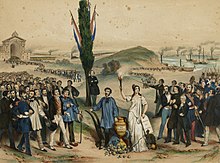

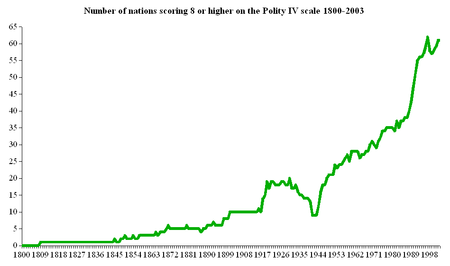

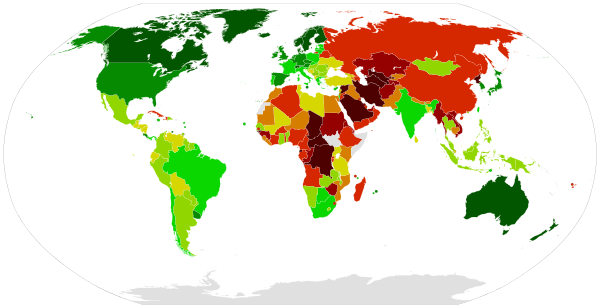

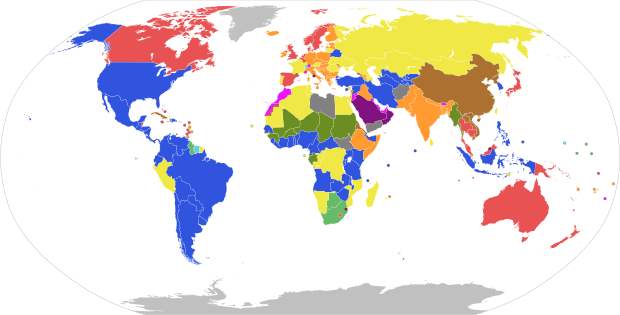

| Parliamentary republics[SUP]2[/SUP] | Single-party states |
| Parliamentary constitutional monarchies | Absolute monarchies |
| Military dictatorships | Parliamentary constitutional monarchies in which the monarch personally exercises power |
| Republics with an executive president dependent on a parliament | Countries which do not fit any of the above systems |
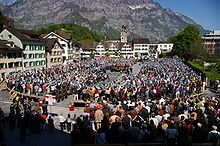

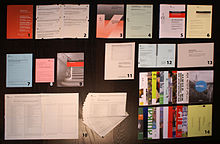

© Copyrights 2008 - 2025 Siasat.pk - All Rights Reserved. Privacy Policy | Disclaimer|
